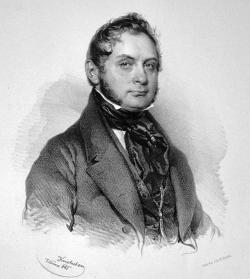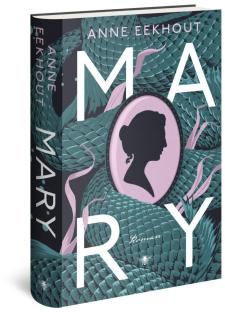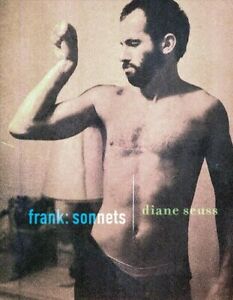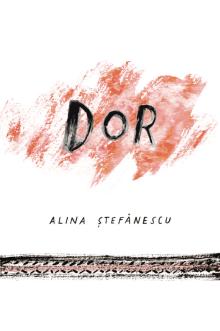Fleurs du Mal Magazine


Or see the index

Who is Silvia?
what is she
Who is Silvia? what is she,
That all our swains commend her?
Holy, fair, and wise is she;
The heaven such grace did lend her,
That she might admirèd be.
Is she kind as she is fair?
For beauty lives with kindness.
Love doth to her eyes repair,
To help him of his blindness;
And, being helped, inhabits there.
Then to Silvia let us sing,
That Silvia is excelling;
She excels each mortal thing
Upon the dull earth dwelling;
To her let us garlands bring
William Shakespeare
(1564 – 1616)
Song: “Who is Silvia? what is she”
(from Two Gentlemen of Verona)
• fleursdumal.nl magazine
More in: Archive S-T, Archive S-T, Shakespeare, William

Take all my loves, my love,
yea, take them all
Take all my loves, my love, yea, take them all:
What hast thou then more than thou hadst before?
No love, my love, that thou mayst true love call—
All mine was thine before thou hadst this more.
Then if for my love thou my love receivest,
I cannot blame thee for my love thou usest;
But yet be blamed if thou this self deceivest
By wilful taste of what thyself refusest.
I do forgive thy robb’ry, gentle thief,
Although thou steal thee all my poverty;
And yet love knows it is a greater grief
To bear love’s wrong than hate’s known injury.
Lascivious grace, in whom all ill well shows,
Kill me with spites, yet we must not be foes.
William Shakespeare
(1564 – 1616)
Take all my loves, my love, yea, take them all
Sonnet 40
• fleursdumal.nl magazine
More in: Archive S-T, Archive S-T, Shakespeare, William

I Am Not Yours
I am not yours, not lost in you,
Not lost, although I long to be
Lost as a candle lit at noon,
Lost as a snowflake in the sea.
You love me, and I find you still
A spirit beautiful and bright,
Yet I am I, who long to be
Lost as a light is lost in light.
Oh plunge me deep in love, put out
My senses, leave me deaf and blind,
Swept by the tempest of your love,
A taper in a rushing wind.
Sara Teasdale
(1884-1933)
I Am Not Yours
• fleursdumal.nl magazine
More in: Archive S-T, Archive S-T, Teasdale, Sara

Venedig
Ich bin so krank und sterben möcht’ ich gerne
Hier in Venedig, und begraben liegen
In dieser Flut, dem Ruheplatz der Sterne!
In jeder Nacht pfleg’ ich mich drauf zu wiegen,
Und ihrer Tiefe schwärzeste Geschichten
Behorch’ ich dann mit schaurigem Vergnügen. –
Beschloß der Rat der Drei, geheim zu richten
Ein Opfer, des Geschrei’s im Volke wegen,
Und galt’s ein schnell und spurenlos Vernichten:
Da glitt um Mitternacht, dem Mond entgegen,
Die Gondel aus der Seufzerbrücke Schatten,
So schwarz und still, wie alle Gondeln pflegen.
Und lautlos durch Galeeren und Fregatten
Kroch sie hindurch, bis wo des Meeres Enge
Sich dehnt zu breiteren, smaragdnen Matten.
Dort hielt sie still. Dann aber war’s, als sprenge
Ein dumpfer Fall die kaum bewegte Fläche,
Und leise Kreise zitterten in Menge.
Auch war’s den Schiffern, die im Nachtgespräche
An Lido’s Ufern stellten ihre Stricke,
Als ob ein Schrei im Wellenschlag zerbräche.
Die stille Gondel aber schwamm zurücke,
Wie sie gekommen, spurlos und verborgen,
Und schwand im Schattenstreif der Seufzerbrücke:
Doch der Verbrecher starb am andern Morgen.
Moritz von Strachwitz
(1822 – 1847)
Venedig
Moritz Karl Wilhelm Graf von Strachwitz (1822-1847), deutscher Dichter
Lithographie von Josef Kriehuber, 1841
• fleursdumal.nl magazine
More in: # Classic Poetry Archive, Archive S-T, Archive S-T
Mary Shelley verblijft op haar veertiende bij een familie in Schotland, waar een innige vriendschap ontstaat met Isabella Baxter.
 Samen dwalen ze in het gebied dat al eeuwen verhalen herbergt over monsters en geesten, en op een dag stuiten ze diep in het bos op een man die geen man is. De ledematen log en lelijk, een hoofd dat noch menselijk, noch dierlijk is.
Samen dwalen ze in het gebied dat al eeuwen verhalen herbergt over monsters en geesten, en op een dag stuiten ze diep in het bos op een man die geen man is. De ledematen log en lelijk, een hoofd dat noch menselijk, noch dierlijk is.
Vier jaar later brengt Mary met haar geliefde Percy Shelley een bezoek aan haar vrienden John Polidori en Lord Byron, bij het Meer van Genève. ’s Avonds bij het haardvuur vertellen ze elkaar verhalen. Een flintertje herinnering brengt haar terug naar haar tijd met Isabella in Schotland, en ook naar David Booth, een zeer intelligente, charismatische, maar tegelijk ook griezelige man, die een grote interesse in Mary en Isabella ontwikkelde. Dan dient ook het monster uit het bos zich weer aan, en vanuit die gedachte ontstaat haar verhaal over het monster van Frankenstein.
Mary is een ode aan de verbeelding, een verhaal over creëren, over de onlosmakelijke band tussen fantasie en werkelijkheid. En evenals Mary Shelley toont Anne Eekhout de kracht van een vrouw wanneer die iets ter wereld brengt wat niemand voor mogelijk had gehouden.
Anne Eekhout debuteerde in 2014 met de roman Dogma, die werd genomineerd voor de Bronzen Uil voor het beste debuut, op de longlist stond van de AKO Literatuurprijs en die wordt vertaald in het Duits. In 2016 verscheen Op een nacht (genomineerd voor de BNG Literatuurprijs) en in 2019 Nicolas en de verdwijning van de wereld, dat de prijs voor het Beste Boek voor Jongeren won. In november 2021 verschijnt de roman Mary waarin met verbluffende verbeeldingskracht de achttienjarige schepper van het meesterwerk Frankenstein tot leven wordt gewekt.
# new novel
Mary
Auteur: Anne Eekhout
Type: Gebonden
ISBN: 9789403153315
NUR: 301
Aantal pagina’s: 384
Uitgever: De Bezige Bij
Verschijningsdatum: 18-11-2021
Prijs: 24,99
• fleursdumal.nl magazine
More in: #Biography Archives, - Book News, - Bookstores, Archive E-F, Archive S-T, Byron, Byron, Lord, Keats, Keats, John, Mary Shelley, Percy Byssche Shelley, Shelley, Shelley, Mary, Shelley, Percy Byssche

La pluie
Enfin la haute Providence
Qui gouverne à son gré le temps,
Travaillant à notre abondance
Rendra les laboureurs contents :
Sus ! que tout le monde s’enfuie,
Je vois de loin venir la pluie,
Le ciel est noir de bout en bout
Et ses influences bénignes
Vont tant verser d’eau sur les vignes
Que nous n’en boirons point du tout.
L’ardeur grillait toutes les herbes,
Et tel les voyait consumer
Qui n’eût pas cru tirer des gerbes
Assez de grain pour en semer.
Bref, la terre, en cette contrée,
D’une béante soif outrée,
N’avait souffert rien de pareil
Depuis qu’une audace trop vaine
Porta le beau fils de Climène
Sur le brillant char du soleil.
Mais les dieux mettant bas les armes
Que leur font prendre nos péchés,
Veulent témoigner par des larmes
Que les nôtres les ont touchés :
Déjà, l’humide Iris étale
Son beau demi-cercle d’opale
Dedans le vague champ de l’air
Et, pressant mainte épaisse nue,
Fait obscurcir à sa venue
Le temps qui se montrait si clair.
Ces pauvres sources épuisées
Qui ne coulaient plus qu’en langueur,
En tressaillent comme fusées
D’une incomparable vigueur ;
je pense, à les voir si hautaines,
Que les eaux de mille fontaines
Ont ramassé dedans ces lieux
Ce qui leur restait de puissance
Pour aller par reconnaissance
Au devant de celles des cieux.
Payen, sauvons-nous dans ta salle
Voilà le nuage crevé ;
O, comme à grands flots il dévale !
Déjà, tout en est abreuvé.
Mon Dieu ! Quel plaisir incroyable !
Que l’eau fait un bruit agréable
Tombant sur ces feuillages verts !
Et que je charmerais l’oreille
Si cette douceur non pareille
Se pouvait trouver en mes vers !
Çà, que l’on m’apporte une coupe :
Du vin frais, il en est saison ;
Puisque Cérès boit à la troupe,
Il faut bien lui faire raison !
Mais non pas avec ce breuvage
De qui le goût fade et sauvage
Ne saurait plaire qu’aux sablons
Ou à quelque jeune pucelle
Qui ne but que de l’eau comme elle
Afin d’avoir les cheveux blonds.
Regarde à l’abri de ces saules
Un pèlerin qui se tapit :
Le dégoût perce ses épaules
Mais il n’en a point de dépit.
Contemple un peu dans cette allée
Thibaut à la mine hâlée
Marcher froidement par compas ;
Le bonhomme sent telle joie
Qu’encore que cette eau le noie,
Si ne s’en ôtera-t-il pas.
Vois déjà dans cette campagne
Ces vignerons tout transportés
Sauter comme genets d’Espagne
Se démenant de tous côtés ;
Entends d’ici tes domestiques
Entrecouper leurs chants rustiques
D’un fréquent battement de mains ;
Tous les coeurs s’en épanouissent
Et les bêtes s’en réjouissent
Aussi bien comme les humains.
Marc-Antoine Girard de Saint-Amant
(1594 – 1661)
La pluie
• fleursdumal.nl magazine
More in: # Classic Poetry Archive, Archive G-H, Archive G-H, Archive S-T, Archive S-T

An Epigram
The scriptures affirm (as I heard in my youth,
For indeed I ne’er read them, to speak for once truth)
That death is the wages of sin, but the just
Shall die not, although they be laid in the dust.
They say so; so be it, I care not a straw,
Although I be dead both in gospel and law;
In verse I shall live, and be read in each climate;
What more can be said of prime sergeant or primate?
While Carter and Prendergast both may be rotten,
And damn’d to the bargain, and yet be forgotten.
Jonathan Swift
(1667 – 1745)
An Epigram
fleursdumal.nl magazine
More in: Archive S-T, Archive S-T, Swift, Jonathan

Plainte sur la mort de Sylvie
Ruisseau qui cours après toi-même
Et qui te fuis toi-même aussi,
Arrête un peu ton onde ici
Pour écouter mon deuil extrême.
Puis, quand tu l’auras su, va-t’en dire à la mer
Qu’elle n’a rien de plus amer.
Raconte-lui comme Sylvie,
Qui seule gouverne mon sort,
A reçu le coup de la mort
Au plus bel âge de la vie,
Et que cet accident triomphe en même jour
De toutes les forces d’Amour.
Las ! je n’en puis dire autre chose,
Mes soupirs tranchent mon discours.
Adieu, ruisseau, reprends ton cours
Qui, non plus que moi, se repose ;
Que si, par mes regrets, j’ai bien pu t’arrêter,
Voici des pleurs pour te hâter.
Marc-Antoine Girard de Saint-Amant
(1594 – 1661)
Plainte sur la mort de Sylvie
• fleursdumal.nl magazine
More in: # Classic Poetry Archive, Archive G-H, Archive S-T, Archive S-T

La débauche
(extrait)
Bacchus ! qui vois notre débauche,
Par ton saint portrait que j’ébauche
En m’enluminant le museau
De ce trait que je bois sans eau ;
Par ta couronne de lierre,
Par la splendeur de ce grand verre,
Par ton thyrse tant redouté,
Par ton éternelle santé,
Par l’honneur de tes belles fêtes,
Par tes innombrables conquêtes,
Par les coups non donnés, mais bus,
Par tes glorieux attributs,
Par les hurlements des Ménades,
Par le haut goût des carbonnades,
Par tes couleurs blanc et clairet,
Par le plus fameux cabaret,
Par le doux chant de tes orgies,
Par l’éclat des trognes rougies,
Par table ouverte à tout venant,
Par les fins mors de ta cabale,
Par le tambour et la cymbale,
Par tes cloches qui sont des pots,
Par tes soupirs qui sont des rots,
Par tes hauts et sacrés mystères,
Par tes furieuses panthères,
Par ce lieu si frais et si doux,
Par ton bouc, paillard comme nous,
Par ta grosse garce Ariane,
Par le vieillard monté sur l’âne,
Par les satyres, tes cousins,
Par la fleur des plus beaux raisins,
Par ces bisques si renommées,
Par ces langues de boeuf fumées,
Par ce tabac, ton seul encens,
Par tous les plaisirs innocents,
Par ce jambon couvert d’épice,
Par ce long pendant de saucisse,
Par la majesté de ce broc,
Par masse, tope, cric et croc,
Par cette olive que je mange,
Par ce gai passeport d’orange,
Par ce vieux fromage pourri,
Bref par Gillot, ton favori,
Reçois-nous dans l’heureuse troupe,
Des francs chevaliers de la coupe,
Et, pour te montrer tout divin,
Ne la laisse jamais sans vin.
Marc-Antoine Girard de Saint-Amant
(1594 – 1661)
La débauche
(extrait)
• fleursdumal.nl magazine
More in: # Classic Poetry Archive, Archive G-H, Archive S-T, Archive S-T
Soms humoristisch, soms zakelijk, maar altijd in een volstrekt eigen vorm. De poëzie van Alfred Schaffer wordt alom geroemd om haar meerstemmigheid en schakelt moeiteloos tussen engagement en absurditeit.
 Schaffer ontving de P.C. Hooft-prijs 2021 en is daarmee een van de jongste laureaten ooit van Nederlands belangrijkste literaire oeuvreprijs. Sinds zijn debuutbundel Zijn opkomst in de voorstad (2000), die werd bekroond met de eerste Jo Peters Poëzieprijs, weet Schaffer zich constant te vernieuwen, met het vol lof onthaalde wie was ik. strafregels (2020) als meest recente uiting van zijn virtuoze dichterschap.
Schaffer ontving de P.C. Hooft-prijs 2021 en is daarmee een van de jongste laureaten ooit van Nederlands belangrijkste literaire oeuvreprijs. Sinds zijn debuutbundel Zijn opkomst in de voorstad (2000), die werd bekroond met de eerste Jo Peters Poëzieprijs, weet Schaffer zich constant te vernieuwen, met het vol lof onthaalde wie was ik. strafregels (2020) als meest recente uiting van zijn virtuoze dichterschap.
Zo heb ik u lief. alle gedichten tot nu toe brengt twintig jaar dichterschap en negen bundels samen in één band en laat zien dat Schaffer ontegenzeggelijk een van de beste hedendaagse dichters in het Nederlandse taalgebied is.
Alfred Schaffer (1973) is dichter, docent en vertaler. Hij studeerde Nederlandse Taal- en Letterkunde en Film- en Theaterwetenschappen alvorens in 1996 naar Zuid-Afrika te verhuizen, waar hij als docent verbonden was aan de Universiteit van Kaapstad. Tussen 2007 en 2010 was hij fondsredacteur van De Bezige Bij. In 2011 vertrok hij opnieuw naar Zuid-Afrika, waar hij doceert aan de Universiteit van Stellenbosch.
Nog niet verschenen. Reserveer het boek nu bij uw boekhandel. Het boek verschijnt rond 02-09-2021.
Zo heb ik u lief
Alle gedichten tot nu toe
Auteur: Alfred Schaffer
ISBN: 9789403141213
NUR: 306
Paperback
Aantal pagina’s: 736
Uitgever: De Bezige Bij
Verschijningsdatum: 02-09-2021
Prijs: 34,99
• fleursdumal.nl magazine
More in: #Modern Poetry Archive, Archive S-T, Archive S-T
Diane Seuss writes in this brilliant, candid work, her most personal collection to date.
 These poems tell the story of a life at risk of spilling over the edge of the page, from Seuss’s working-class childhood in rural Michigan to the dangerous allures of New York City and back again.
These poems tell the story of a life at risk of spilling over the edge of the page, from Seuss’s working-class childhood in rural Michigan to the dangerous allures of New York City and back again.
With sheer virtuosity, Seuss moves nimbly across thought and time, poetry and punk, AIDS and addiction, Christ and motherhood, showing us what we can do, what we can do without, and what we offer to one another when we have nothing left to spare.
Like a series of cels on a filmstrip, frank: sonnets captures the magnitude of a life lived honestly, a restless search for some kind of “beauty or relief.” Seuss is at the height of her powers, devastatingly astute, austere, and―in a word―frank.
“The sonnet, like poverty, teaches you what you can do / without,”
# New Poetry
frank: sonnets
by Diane Seuss
Publisher: Graywolf Press
March 2, 2021
Language: English
Paperback
152 pages
ISBN-10: 1644450453
ISBN-13: 978-1644450451
$15.99
• fleursdumal.nl magazine
More in: #Modern Poetry Archive, Archive S-T, Archive S-T
Winner of the 2021 Wandering Aengus Book Award!
 Alina Ștefănescu’s DOR is a compendium of desire, displacement, longing, and belonging. While the word “dor” itself “serves as a bridge which creates its own territory from fusion,” here Stefanescu’s words do their own act of bridging the spaces between the body and language. In these poems, tongues, like nations, have borders; nouns and verbs come alive with ownership and agency. Stefanescu writes “a good girl poem waits // for the bass.” but these are not good girl poems.
Alina Ștefănescu’s DOR is a compendium of desire, displacement, longing, and belonging. While the word “dor” itself “serves as a bridge which creates its own territory from fusion,” here Stefanescu’s words do their own act of bridging the spaces between the body and language. In these poems, tongues, like nations, have borders; nouns and verbs come alive with ownership and agency. Stefanescu writes “a good girl poem waits // for the bass.” but these are not good girl poems.
Part genealogy of influences, part meditation on love, lust, and loss, and part pointed feminist critique, DOR is a multi-faceted collection that creates a newly textured landscape of language. — Emily Holland, author of Lineage and editor of Poet Lore
Alina Stefanescu was born in Romania and lives in Birmingham, Alabama with her partner and several intense mammals. Her writing can be found in diverse journals, including Prairie Schooner, North American Review, FLOCK, Southern Humanities Review, Crab Creek Review, Virga, Whale Road Review, and others. Alina is the author of Ribald, a prose microchapbook, from Bull City Press. She serves as Poetry Editor for Pidgeonholes, Poetry Editor for Random Sample Review, Poetry Reviewer for Up the Staircase Quarterly, and Co-Director of PEN America’s Birmingham Chapter. A finalist for the 2019 Kurt Brown AWP Prize, Alina won the 2019 River Heron Poetry Prize.
Poem for the Black Bird
(. . .)
You will never forget me, Doru. No one else left
their homeland for you. Her hands shook, pressing
words into the flesh of our home. The life she was
leaving. Her notes, that winding charred necklace,
encircling us. The bird was not black.
It was the color of fire absent smoke.
I can’t forget what it spoke.
Dor
by Alina Stefanescu
English
Poetry
Paperback
Pages: 112
ISBN-13: 9780578915784
Publisher: Wandering Aengus Press
Publication date: 07/22/2021
$20.00
• fleursdumal.nl magazine
More in: #More Poetry Archives, - Book News, Archive S-T, Archive S-T
Thank you for reading Fleurs du Mal - magazine for art & literature